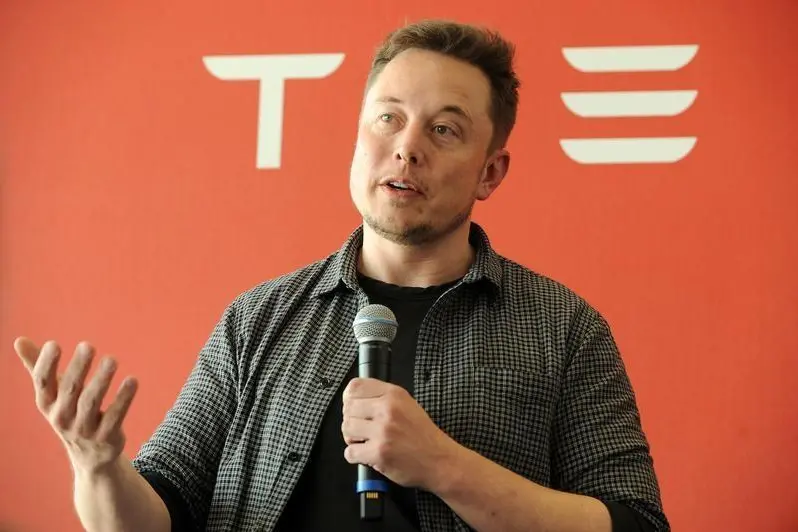PHOTO
NEW YORK - Elon Musk wants to take Tesla private. Well, good riddance, and don’t let the garage door hit the fender on the way out. As innovative and disruptive as the electric-car maker has been over the past decade or more, it doesn’t belong on publicly traded markets.
For starters, it has lost money every year since 2006. That’s understandable for a growing business in a capital-intensive industry. But that’s what venture capital is for. Granted, Musk is adamant that the company will make money in the second half of this year – and more than enough to avoid having to raise more capital, despite a dwindling cash pile. He'll have to deliver with leveraged lenders looking over his shoulder.
It’d be ironic if Tesla drives off the stock exchange just as it becomes profitable. But under Musk the company has routinely reneged on promises and targets. The latest was in last week’s earnings call, when he appeared to dial back expectations of sustainably producing 7,000 vehicles a week for a while.
On top of that, Tesla engages in execrable corporate governance. The board is packed with Musk’s allies. One is his brother, Kimbal, a chef. Lead independent director Antonio Gracias runs a private-equity fund Musk has backed and was a director at another of Musk’s firms, SolarCity, before Tesla bought it in 2016 – a deal that raised governance concerns of its own.
Both also sit on the board of a third Musk venture, SpaceX, in which Tesla director Ira Ehrenpreis has invested. Steve Jurvetson is a director there, too, though has been suspended from both boards after his own venture-capital firm, DFJ, ousted him last November during an investigation into personal misconduct. And Brad Buss spent seven years as SolarCity’s finance chief. That leaves just three directors with no other obvious ties to Musk.
It took almost a day for the board to publicly acknowledge Musk’s tweets about wanting to take Tesla private. And even then its members said little of substance; they have yet to even set up an independent committee in preparation for discussions.
That fits their track record. They stayed silent, for example, when Musk took to Twitter to brand as a “pedo” one of the rescuers of the Thai soccer team trapped in a cave recently. Such outbursts on social media and investor calls make Musk a liability, and Tesla hard to value. The public market is better off without it.
CONTEXT NEWS
- Several members of Tesla’s board of directors on Aug. 8 issued a statement saying Chief Executive Elon Musk started a discussion about taking the company private “(l)ast week ... and also addressed the funding for this to occur.” Directors also said that “the board has met several times over the last week and is taking the appropriate next steps to evaluate this.”
- Directors Elon Musk and his brother Kimbal were not included in the statement. Nor was Steve Jurvetson, who was suspended from both the Tesla and SpaceX boards after he was forced out of his venture-capital fund last year following accusations of sexual harassment.
- Elon Musk used Twitter to announce on Aug. 7 that he might remove Tesla from the stock market – and then later released the letter he had written to employees.
(Editing by Rob Cox, Tom buerkle and Martin Langfield)
© Reuters News 2018





















